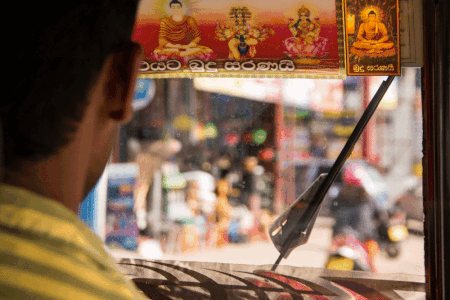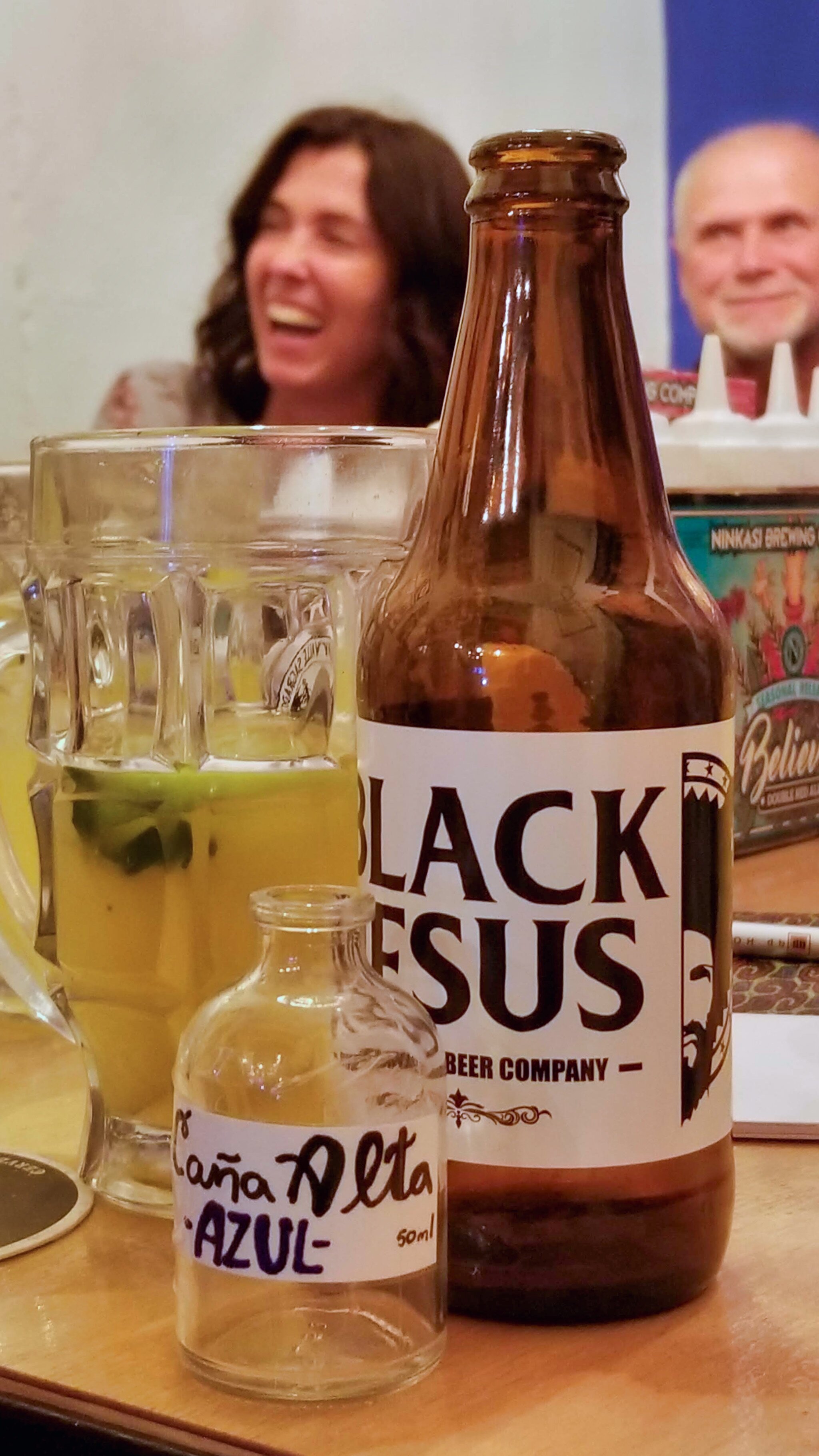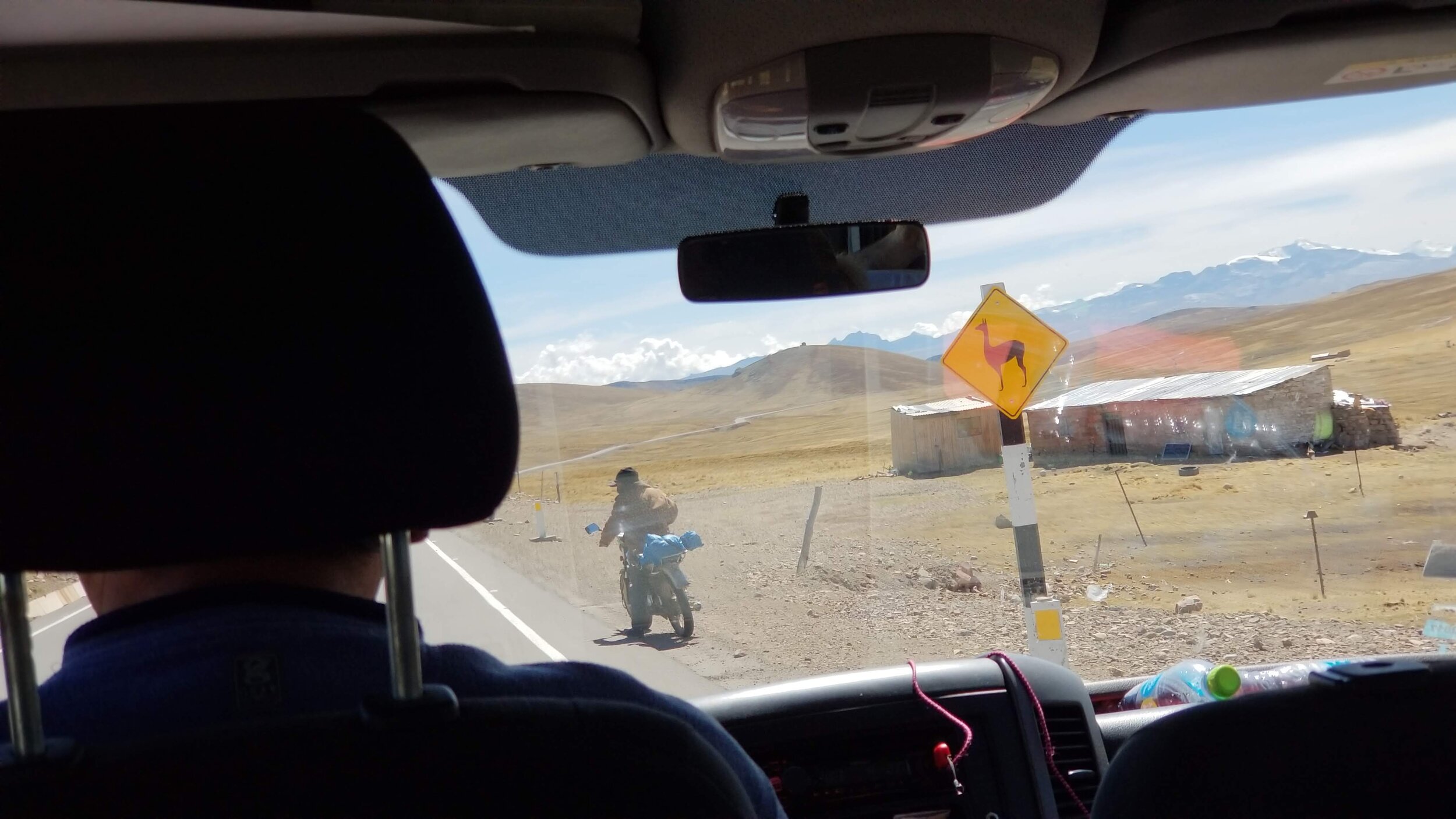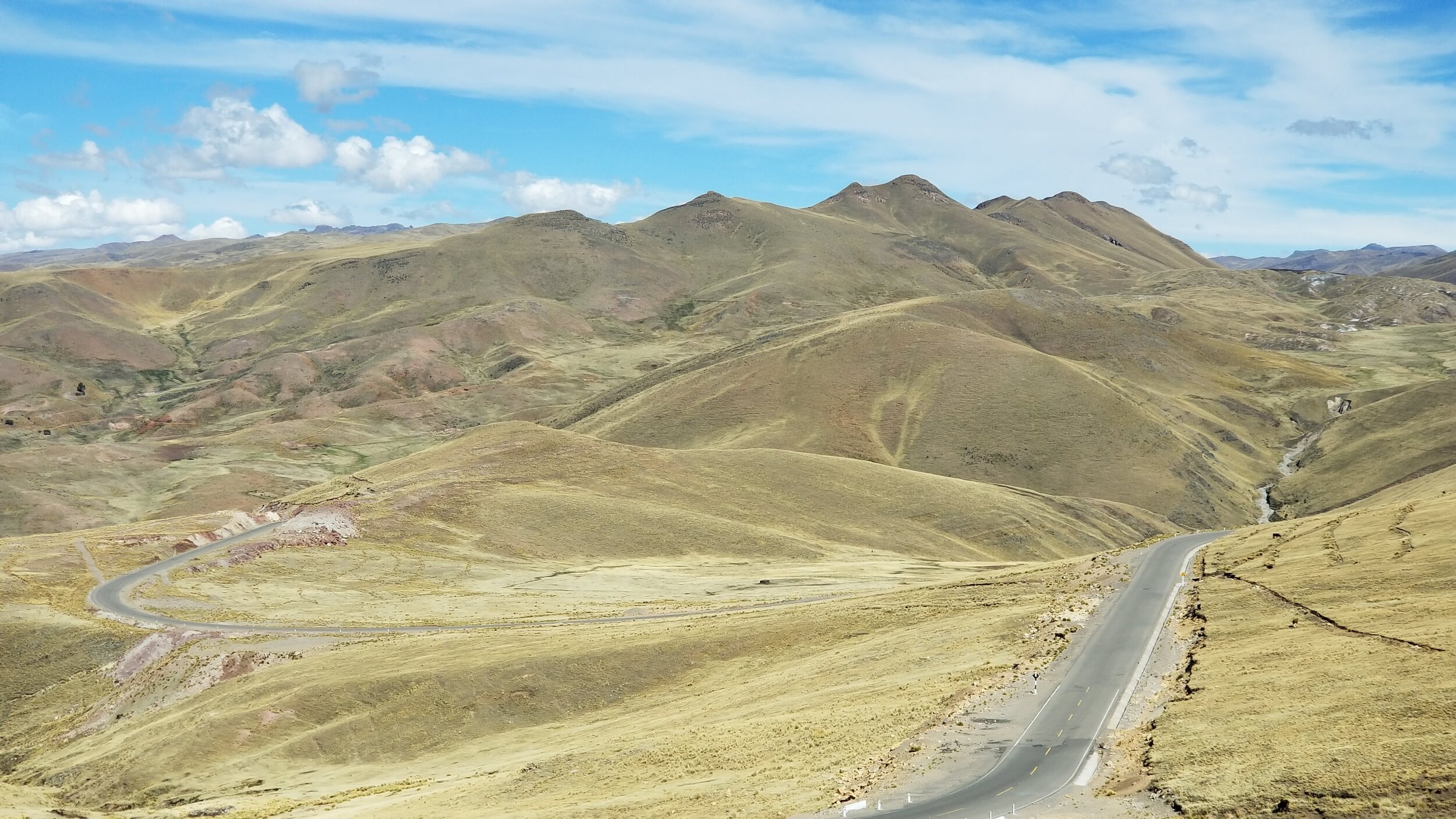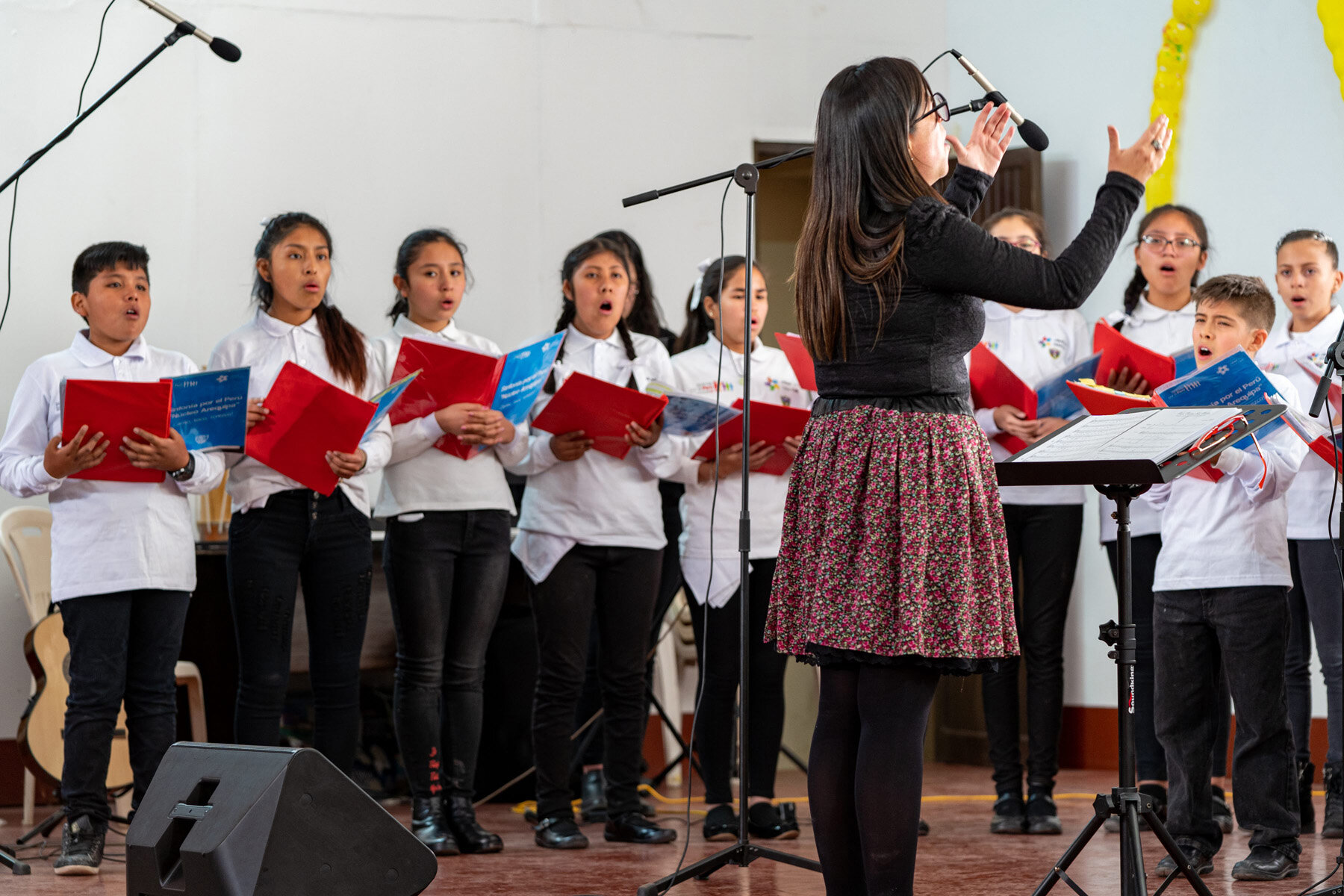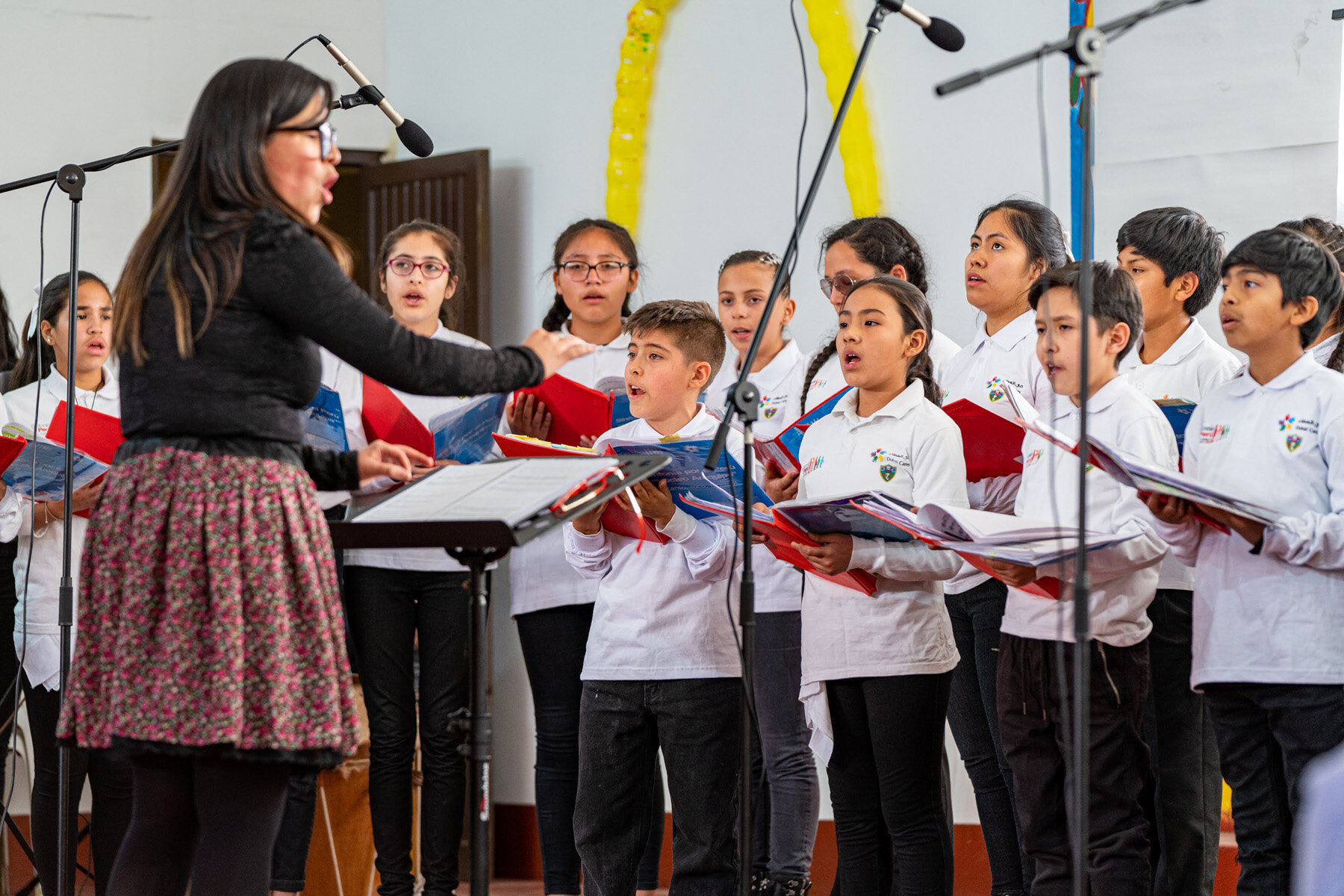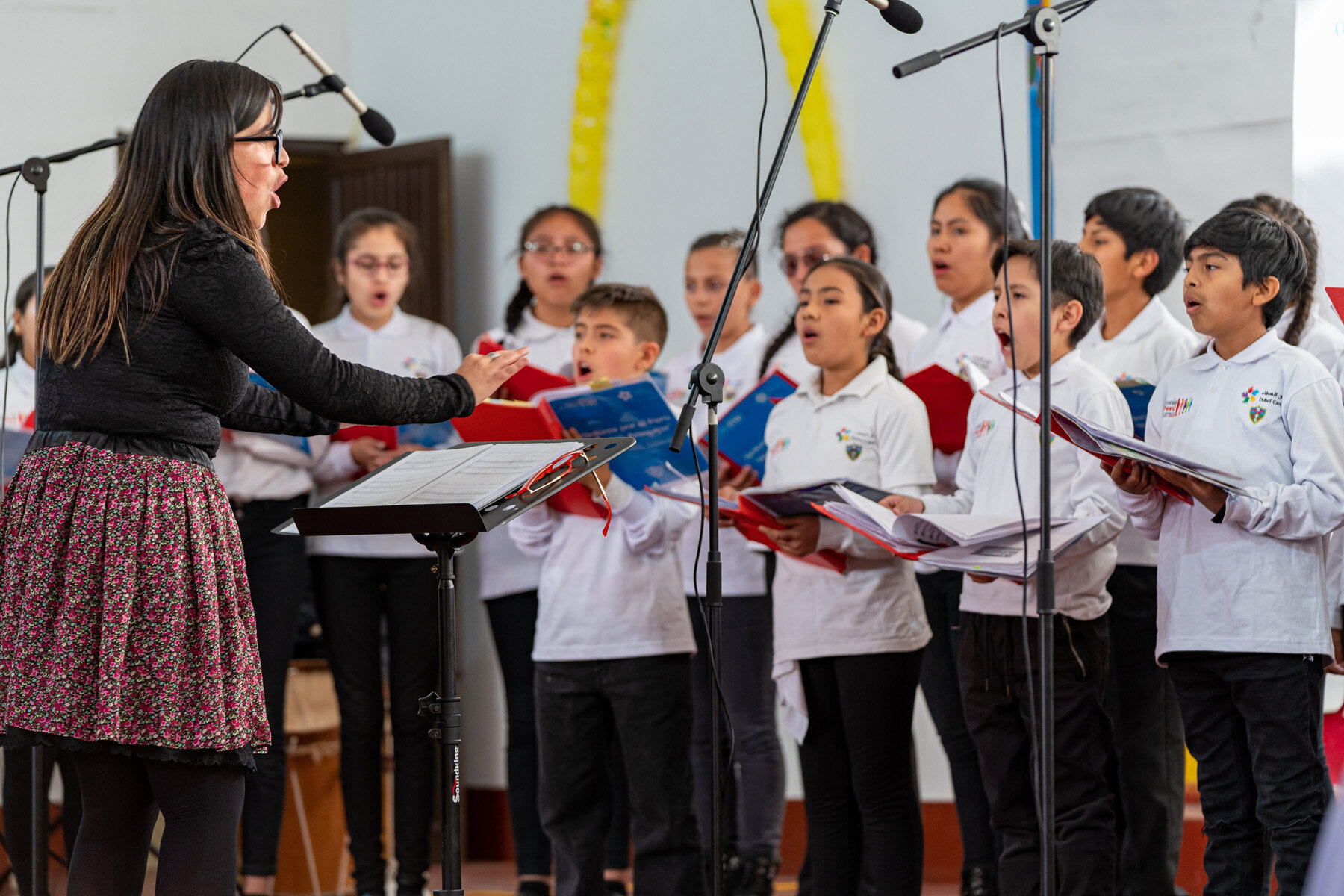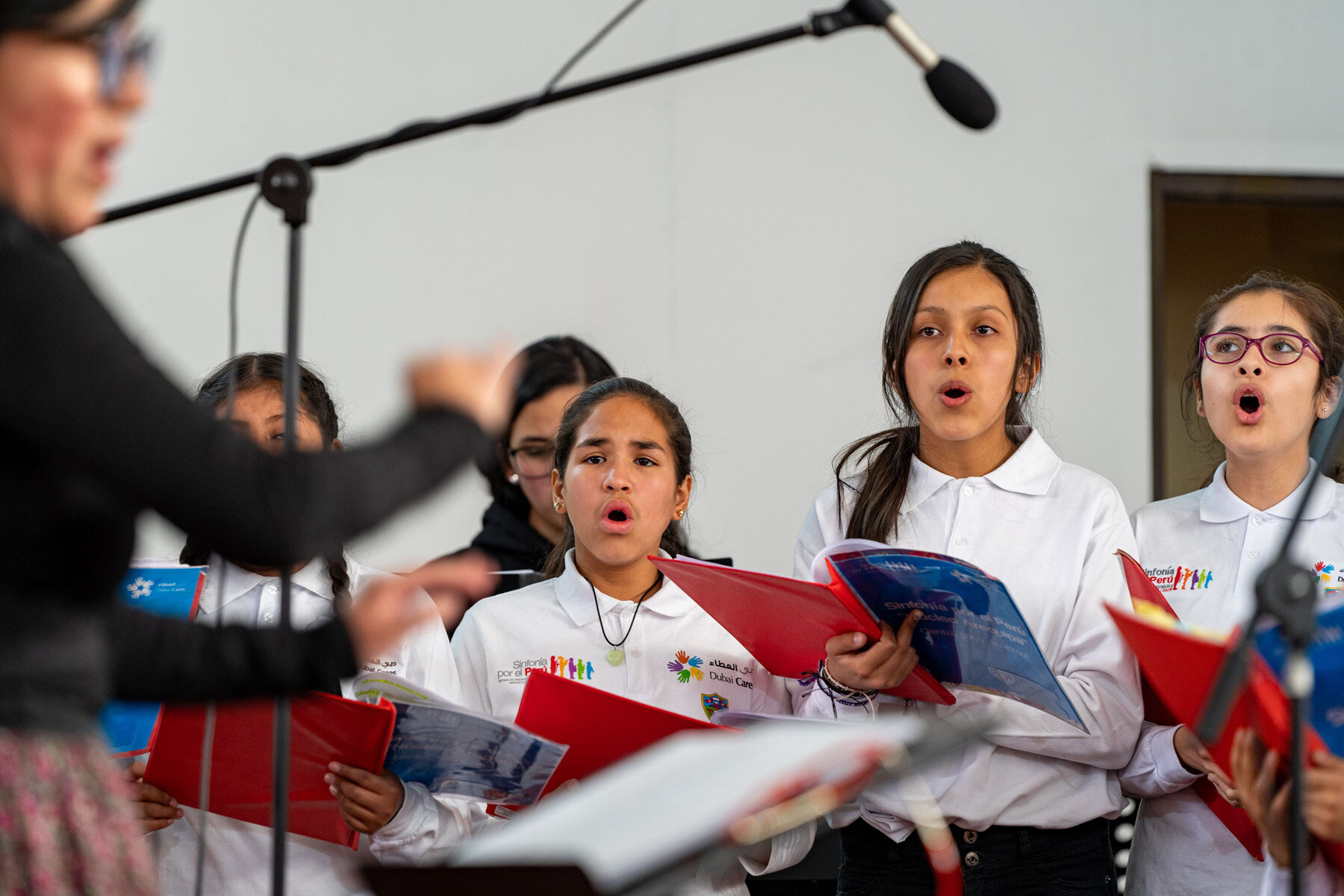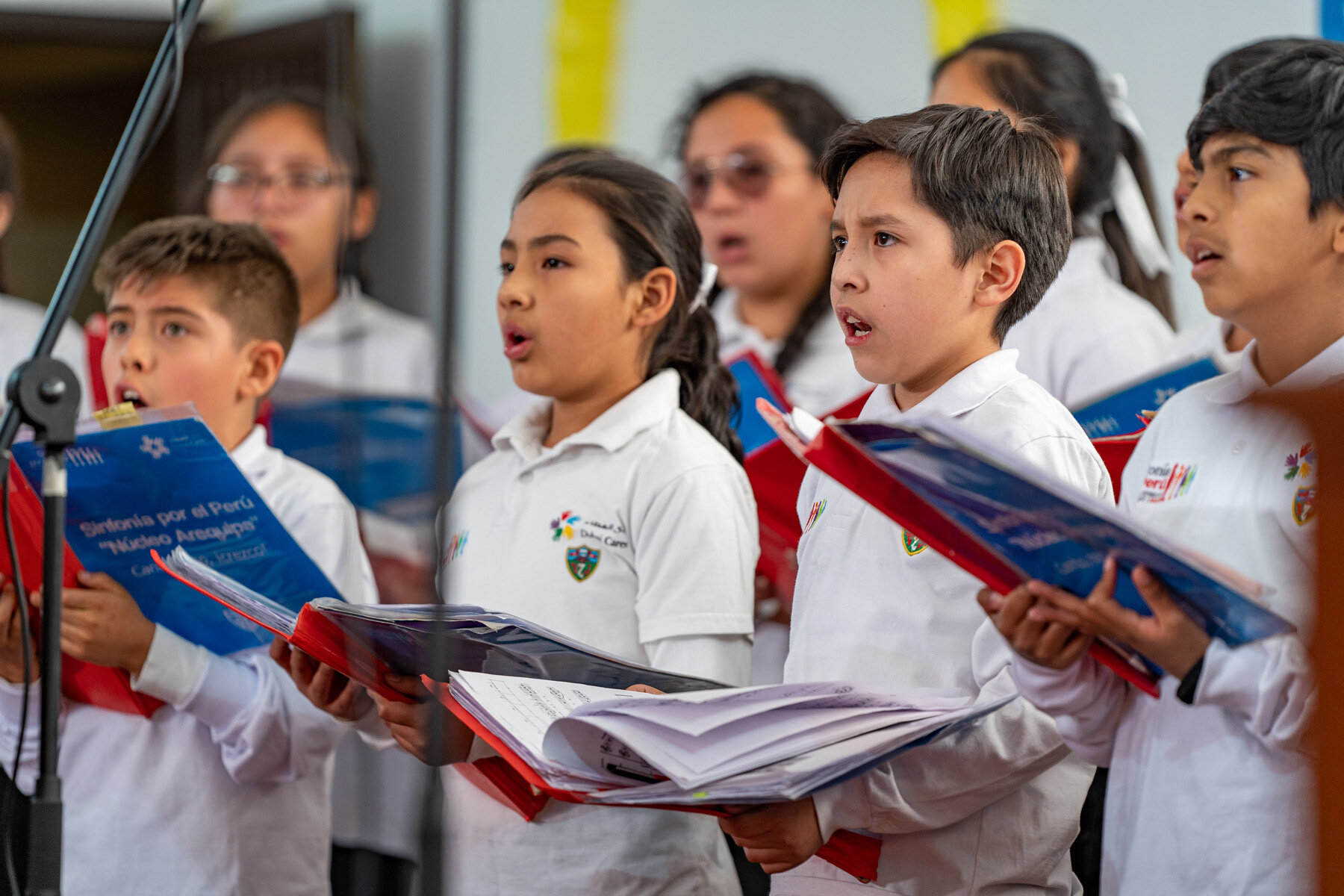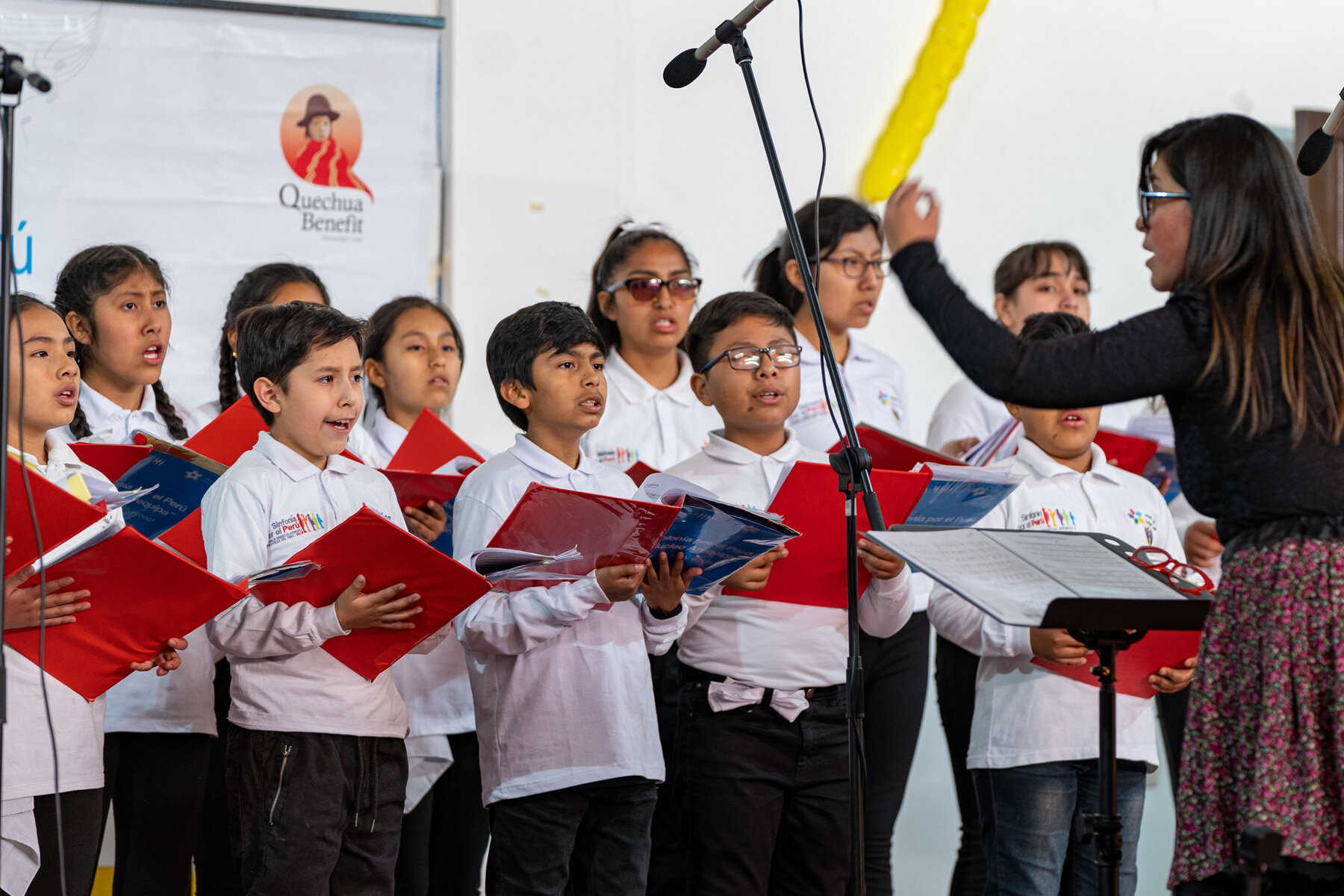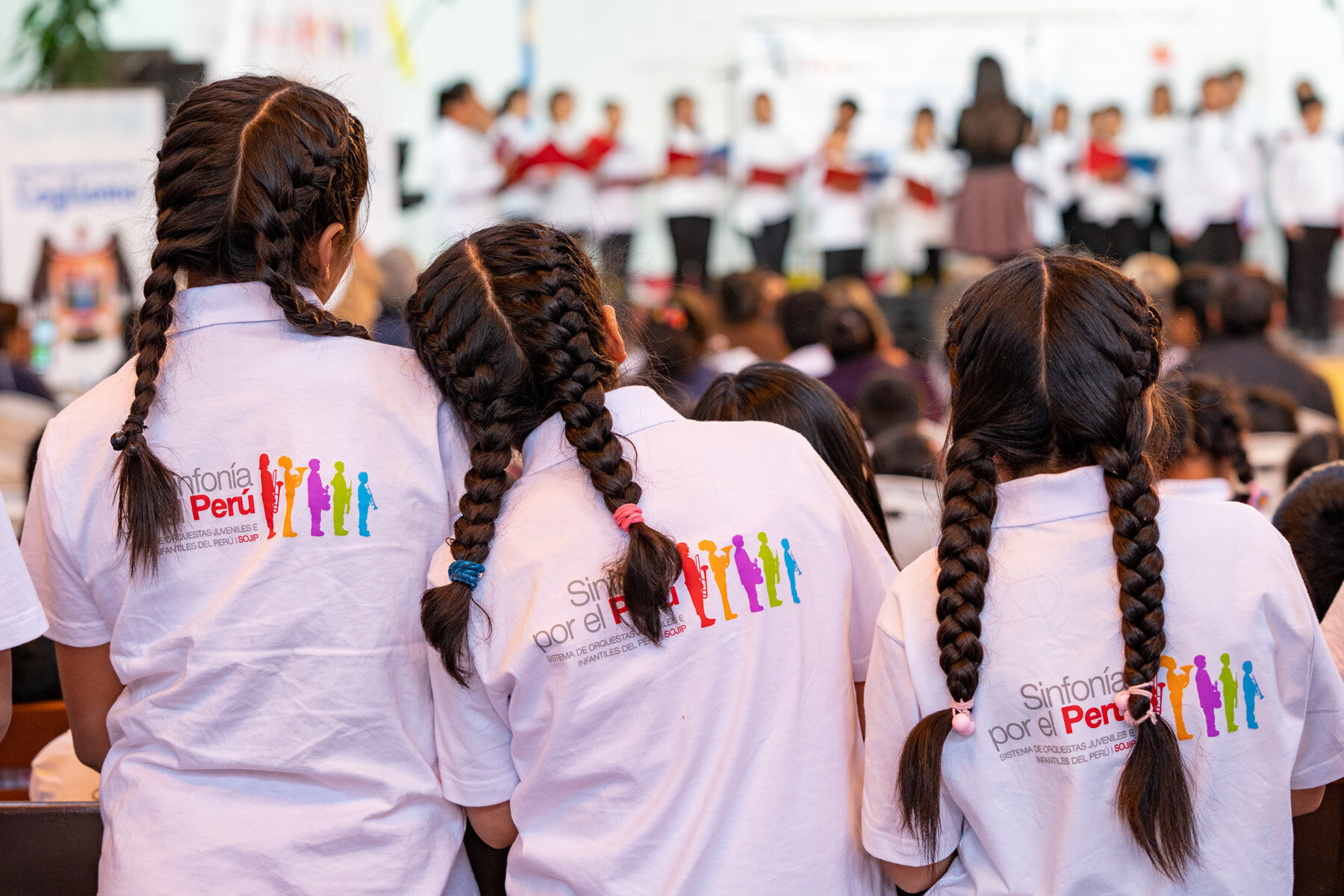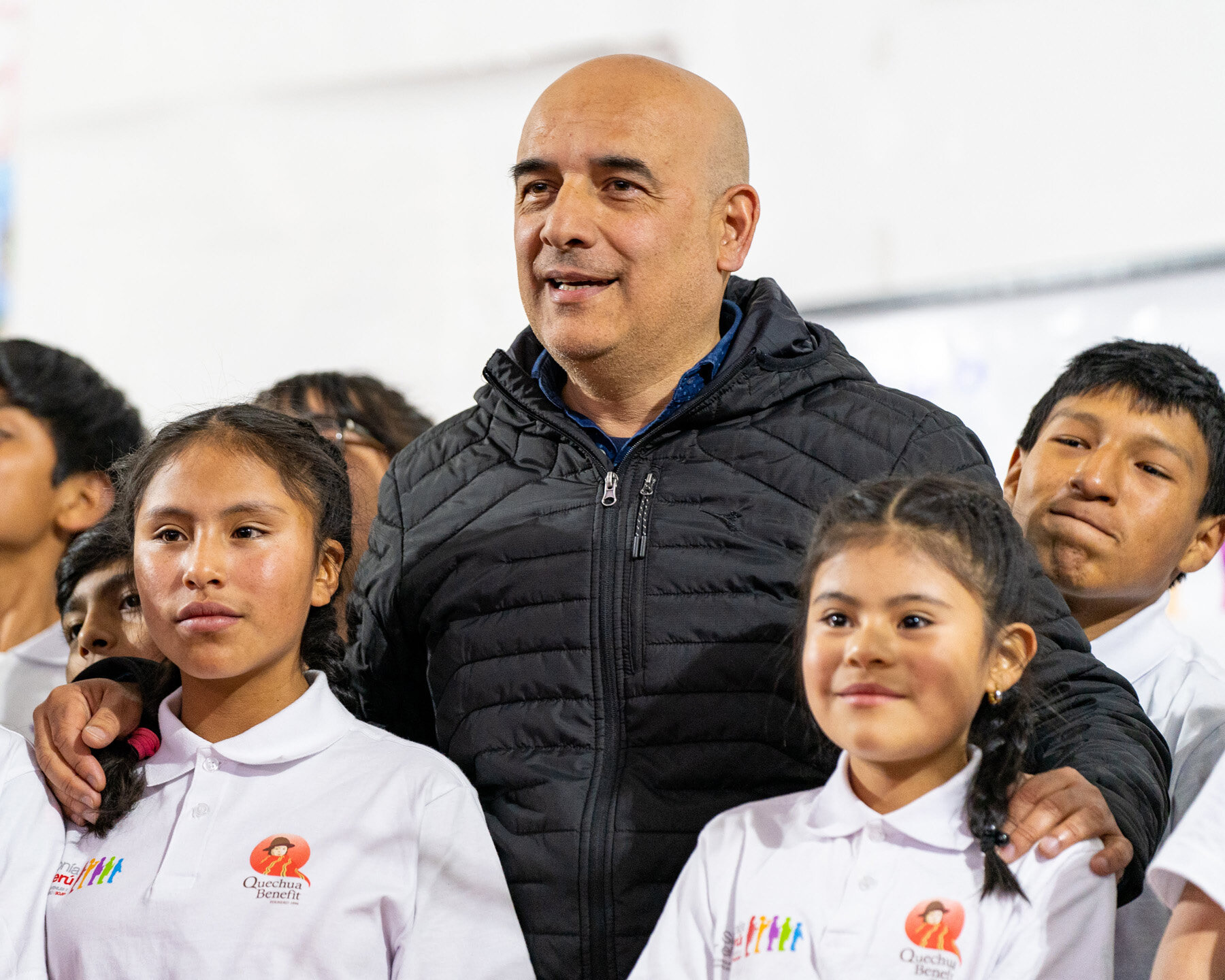Peaks n' 'Pacas in Peru - An Alpaca Fueled Trek Through The Andes - Part 2 - From Coca Tea to Casa Chapi
(If you haven’t yet, and you wanna, start at the beginning of the adventure with Part 1 - Where The Wacky Alpacky Hath Led Me)
I don't know what it is, but whenever I finally step out of any “developing” nation's airport and away from the chaotic calls of various vendors and voices that surrounds every single one across the globe - once I'm in the backseat of a half-century-old car with colorful beads and pendants depicting (real) futbal teams hanging off the rear-view,
…or the rear bench of a rickshaw with a dashboard decorated in ornately-framed depictions of half-familiar dieties,
…or what-should-by-all-accounts-be-an-out-of-commission bus dodging ditches on pothole-laden dirt roads of distant downtowns and cobblestones of villages dating back way beyond the capacities of our modern-day memories,
…once I'm surrounded by sounds and sights and signs and smells (both good and, eh, not so good) and storefronts shouting their wares at me in languages mostly undecipherable - once all of that is finally in play, all the anxieties of international travel, from the painfully unwarranted inhibiting fear of stepping out of our comfort zones to finding-a-SIM-card-to-make-sure-I'm-connected-as-soon-as-possible to, well, just finding a place to take a leak, immediately dissipate, disappear and morph into a strange and inexplicable sense of comfort.
For that's the moment you know you're going places.
That's the moment you realize you're about to learn things.
That’s when you feel life happening.
That's the precise split-second you are reunited with the usually-dormant remaining 90% of your neurons.
The very moment you are forced to just 'be' - completely let go of control and accept your role as just another free floating blob of flesh and bones in a world full of free floating bones and flesh - all just trying their damndest to navigate through this thing.
The beauty of the chaotic order of chaos.
The realities of which didn't take long to dive right into.
After my connecting flight from Lima landed in Arequipa, in the upper foothills of the Andes (yes, 7500 feet elevation is the ‘foothills’ of the Andes...), I was picked up from the airport and taken directly to the hotel for the first night, where I was met by the group that I would essentially be wedded to for the next two weeks.
I have never been on an organized tour before, and have never put myself in a position where I'd be surrounded by, and living with,10 complete strangers, for better or for worse, through thick and thin, in remote mountain ranges far away from any sort of S.O.S. and most modern day conveniences, not the least of which being, toilet seats.
When the first person to introduce herself, the endlessly hilarious Tony Robbins loving-resident-story-teller-alpaca-farmer-chiropractic-entrepreneur from Eugene, Oregon, immediately quoted noted futurist Peter Diamandis (among other things, founder of X-Prize and Singularity University and a personal hero of mine), I knew I was in good company.
We meandered our way through the ancient streets of Arequipa to Chelawasi Public House & Beer Company, a restaurant and brew house started by a transplant from Oregon that served American fare with a Peruvian twist, and, like any Oregonian worth their sap, craft beers - including the mythical Black Jesus.
After an informational 'orientation' in which the tour guides tried their best to allay our concerns and fears of this arranged marriage to 9 bizzaros of various varieties in the hinterlands of strange lands at ungodly and potentially unhealthy altitudes for 2 weeks, like true professionals, we drank.
This was my first introduction to what I was in for and who I was in it with: the alpaca farmers and vacation rental entrepreneurial couple from Indiana, the alpaca farmers/ranchers/general contractor couple from Oregon City, the aforementioned resident storyteller futurist/astrologist/Tony Robbins loving farmer/osteoperosis-rehab-gym-owner from Eugene, Oregon, the Canadian mother/daughter alpaca farmer/power-shopper team from Sasquatchewan, Canada, the part-time-alpaca-farmer-full-time-recovering-corporate-businesswoman from the foothills of California’s Sierra, our soft-spoken and inexplicably patient driver Raul, and, of course, our tour-guides, the ex-oil-and-gasman-turned-passionate-philanthropist from Denver and the former Kentucky Thoroughbred horse breeder and current international alpaca judge (and energizer bunny do-gooder) from Bend, Oregon.
(It's important to note that there were two additional attendees this evening, but due to unfortunate elevation-induced health issues, they were forced to retreat after just a couple of days, so I did not get to know them or their backgrounds enough to comfortably include in this write-up. I do hope that they are ok. That elevation sickness is NOOOO joke, but, fear not, we'll get to that...)
As the evening began to die down, we were informed that we'd be leaving super early the next morning - around 6:30am (which would turn out to be a constant theme on this entire trip) - in order to make it to Chivay, our first stop in the highlands, where we would visit Casa Chapi, a school and orphanage “conceived, created and constructed” by Quechua Benefit with one thought in mind: “children should be given the opportunity to dream, grow and prosper in a safe, loving environment.”
It was during this initial journey that we climbed from our current aformentioned Arequipan elevation of 7500 feet, to a mountain pass at 16,000 feet (that’s NOT a typo) before dropping a bit down into the valley where we'd be spending the next 6 days or so at around 13,000 feet - and it was at that 16,000-feet marker that I got my first-ever proper taste of altitude-induced sickness,
which,
holy shit!
No joke!
That nonsense is NO JOKE!
And the thing is, it doesn’t do you the common courtesy of easing its imposition upon you, it just legit clobbers you in the face!
As soon as I jumped out of the van to photograph a rare wild vicuna on the side of the road (if you don’t know what that is, ohhhh boy you’re quite in for it in Part 3…), my whole world started spinning and my head felt like it connected with a Pacquiao uppercut, and for the better part of the following 72 hours, I could have swore on an Incan Sol that my temples were sliced open and squashed in a salt-dusted vice.
One of the first things they recommend, and conveniently stocked, at a small convenience store in a dirt parking lot on the side of the road, was coca tea. Yes, you are correct - a tea made from coca leaves. I figured when in Peru...
And, well, it did nothing for me.
Since I had a fairly large gig for a regular client back home in Oregon the day before flying out, I didn't have time to arrive days earlier like the rest of the crew to allow ample time to acclimate - something I'll be absolutely sure to never do again, no matter how lucrative the gig (well...I exaggerate for effect...), as my thought that all I needed were a few minutes to gather myself and regain composure were quickly discarded not too long after that when we pulled off to the side of the road again, this time for a bathroom break.
I very slowly made my way to the small stone outhouse, which sat perhaps 10 or 15 yards off the main road along a dirt path. As I was approaching it, the photographer in me got excited when I saw a cloud-laden volcano spewing ash on the horizon, and, naturally, pulled out my camera to photograph it. But immediately, I felt the world spin again and gravity dictated I sit my arse right the fuq down. After mustering enough confidence that I wouldn't yack my scooby snack across the side of the structure, I stood up and slowly walked back to the van when I realized I had forgotten my lens cap back at the outhouse.
DRAT!!
Needless to say, it was a while before we actually got back on the road...
After kilometer after kilometer of winding up and all around and somehow managing to hold everything down, we finally made it to Chivay, our destination for the next two nights.
Our first stop was Casa Chapi Children's Village, the aforementioned school and housing facility for children whose families, for a myriad of gut-wrenching tear-jerking reasons, many of which we heard, are unable to provide for them. Casa Chapi offers "a roof over their heads, warm clothes on their backs, nourishing food in their bellies, and excellent education.” It provides ”a nurturing space for play, learning, creative expression, and big dreams" and nothing could demonstrate their pure gratitude more than their genuine excitement upon our arrival.
We were greeted with hugs, smiles, high-fives and even a well-rehearsed and impassioned dance recital.
It was such an incredibly heartwarming way to begin this adventure, and, as it turns out, that was just the appetizer.
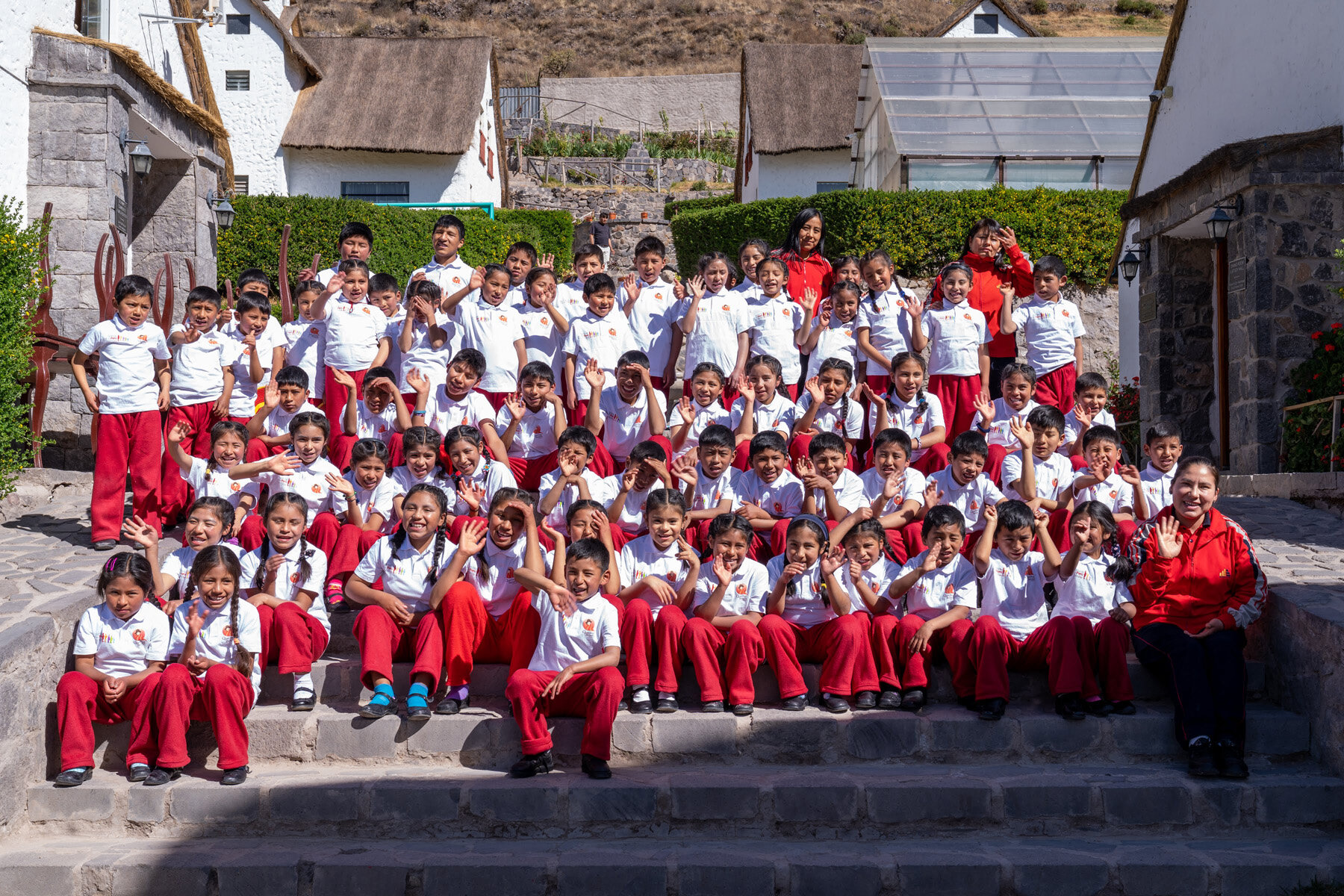
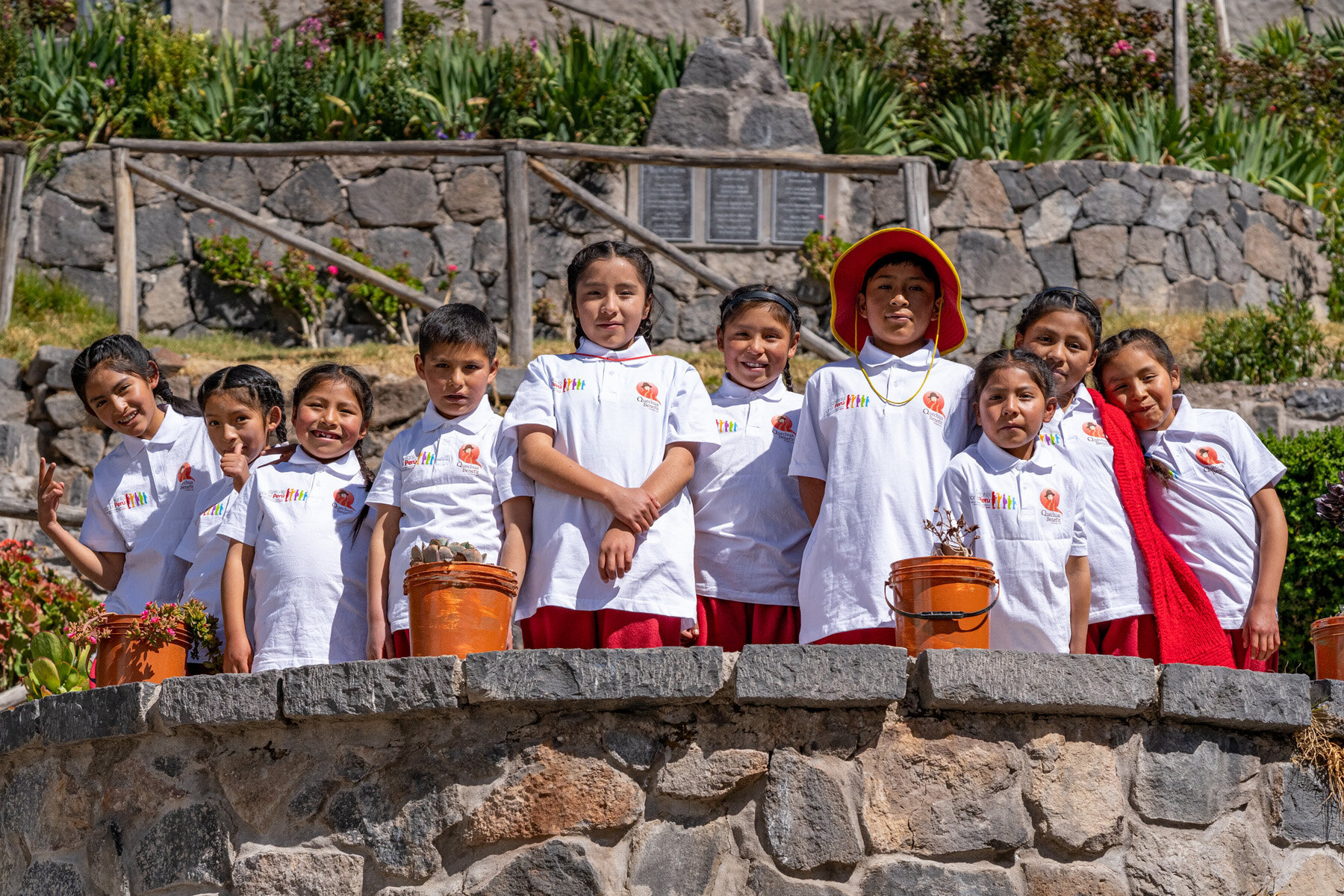
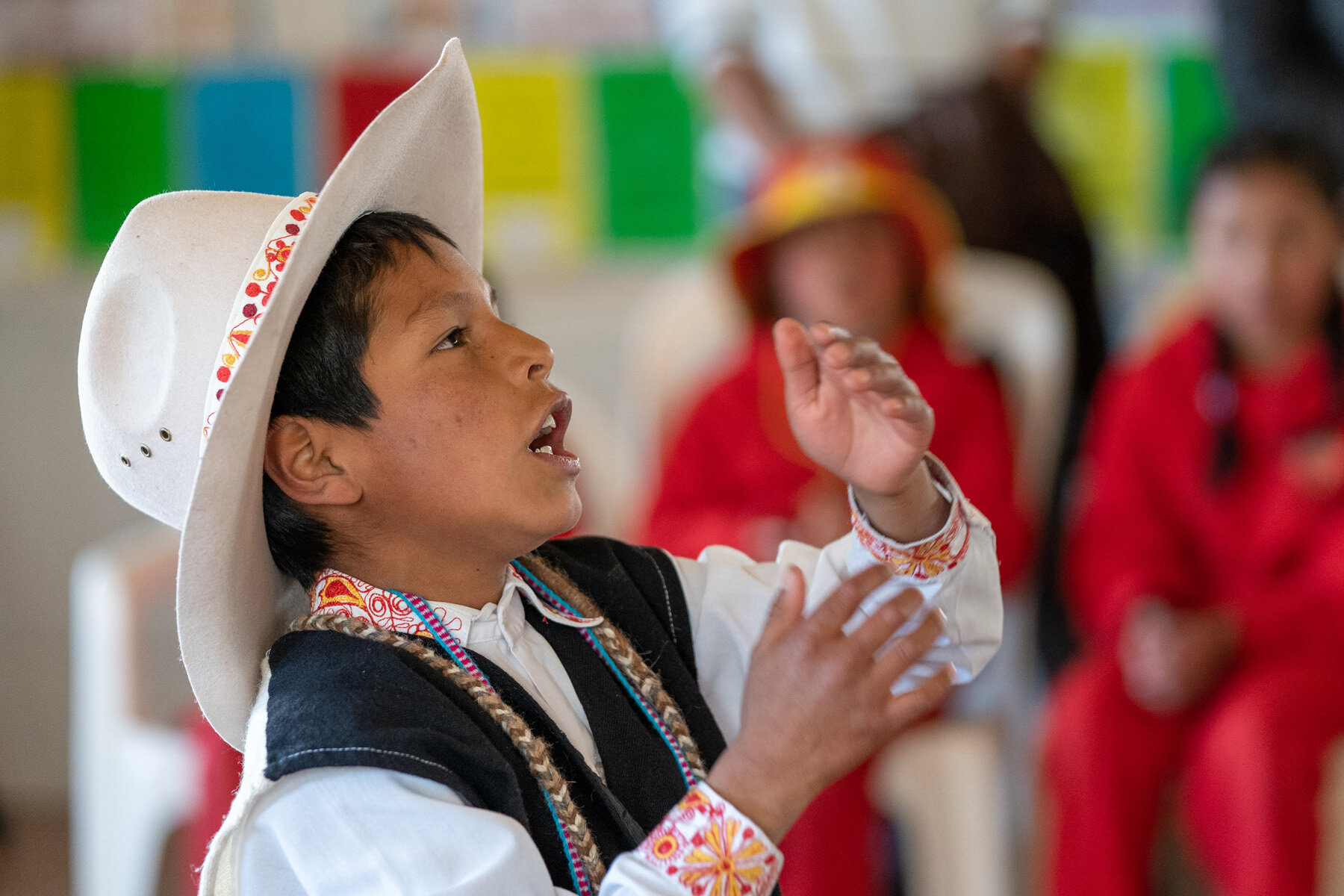
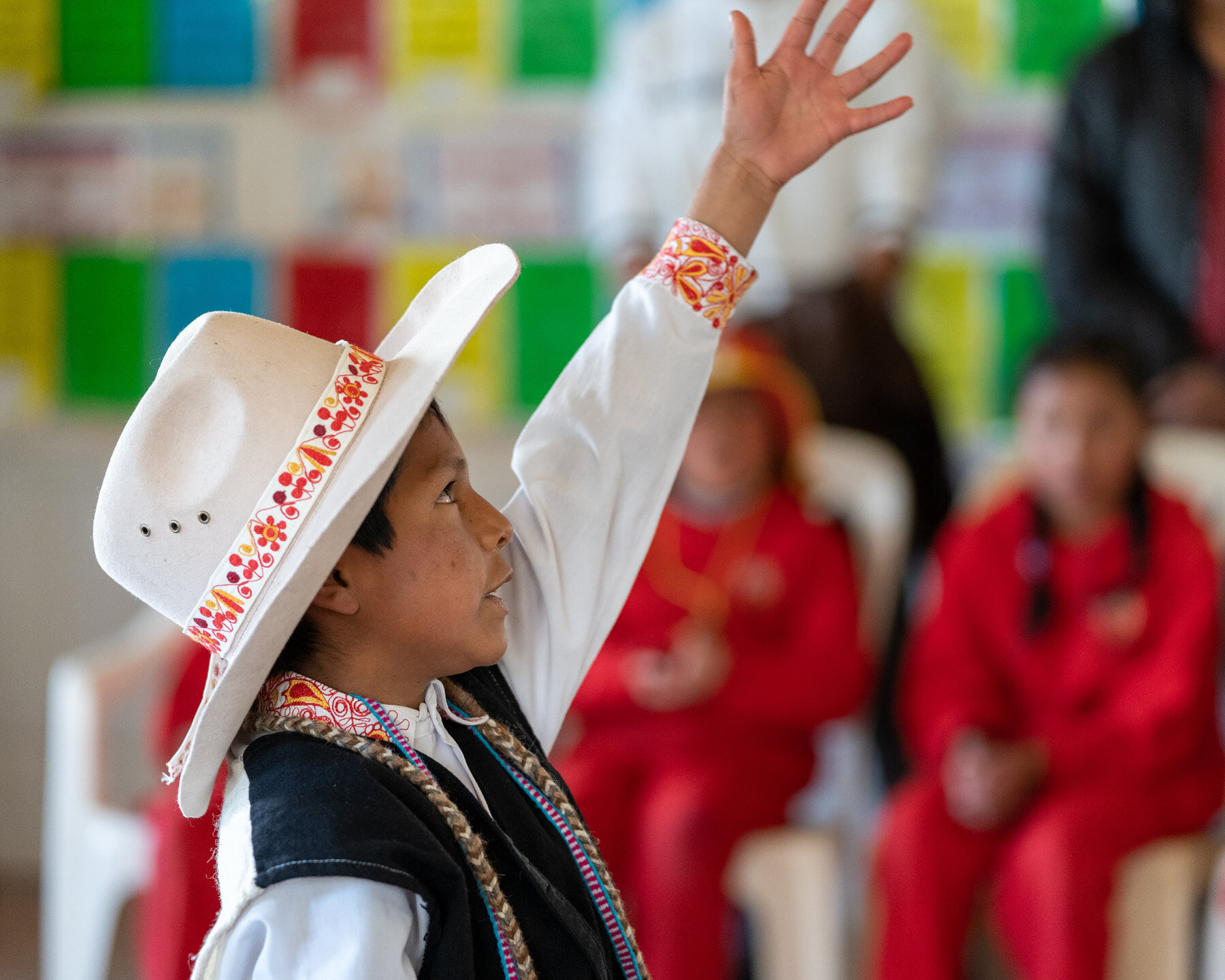
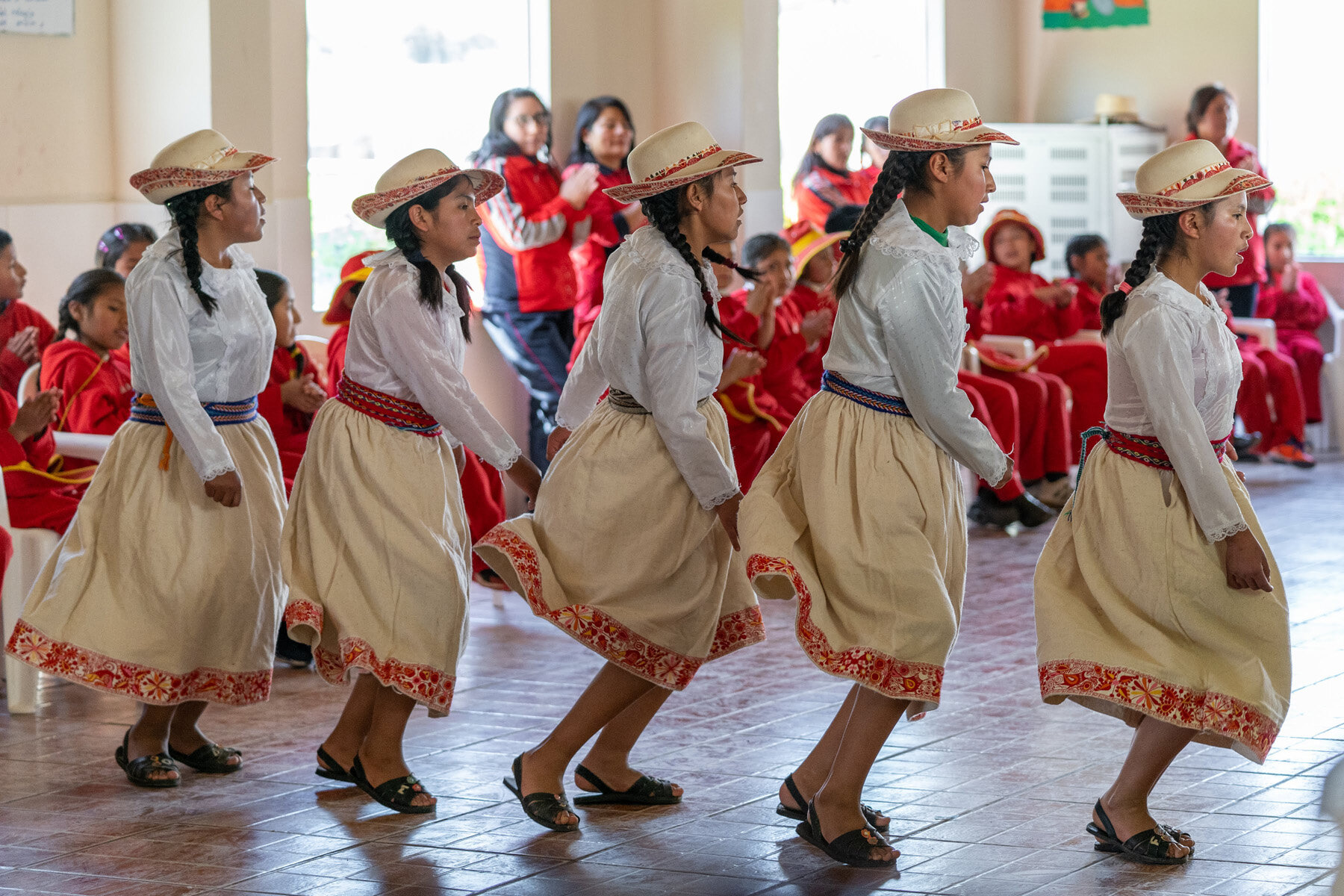
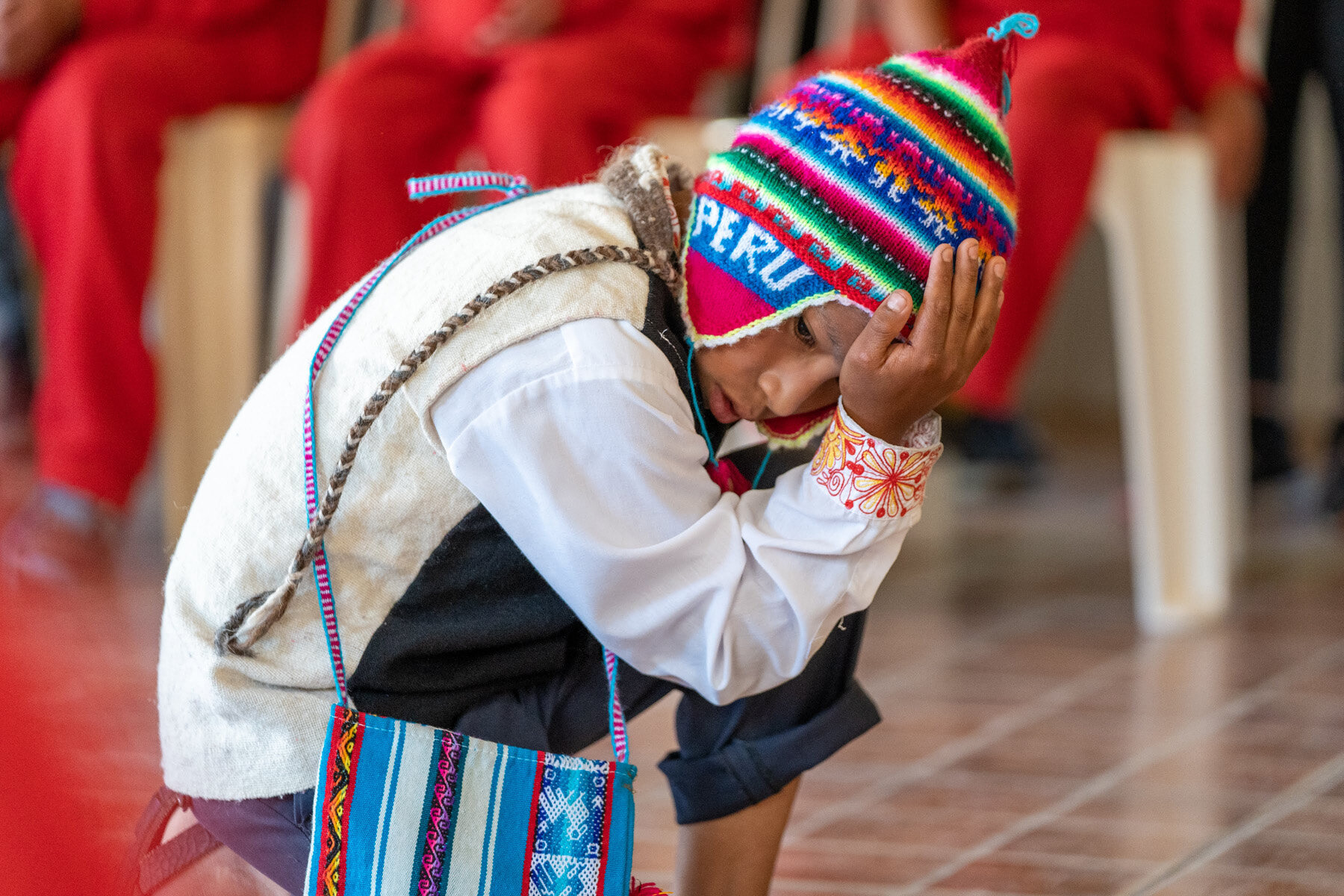
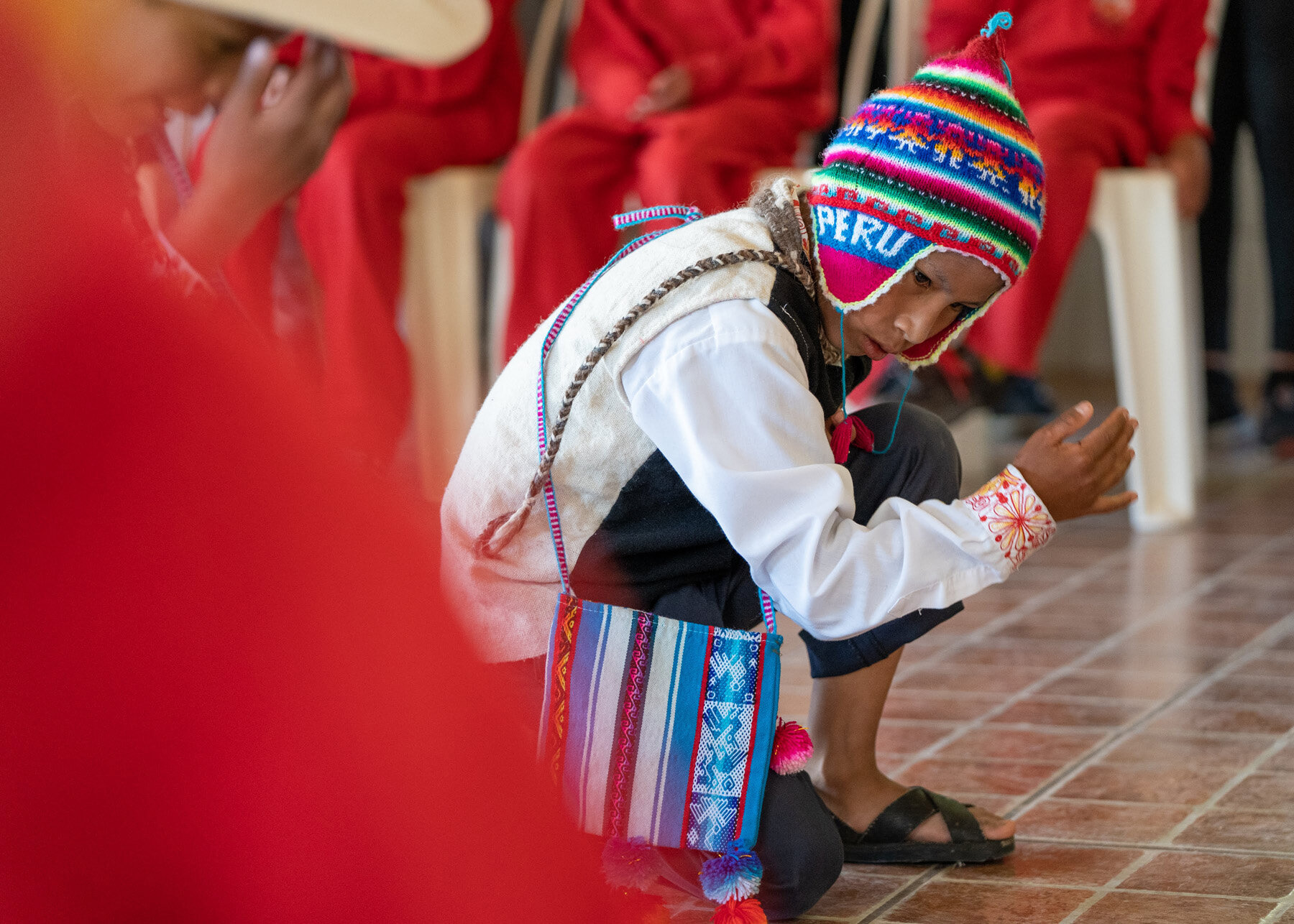
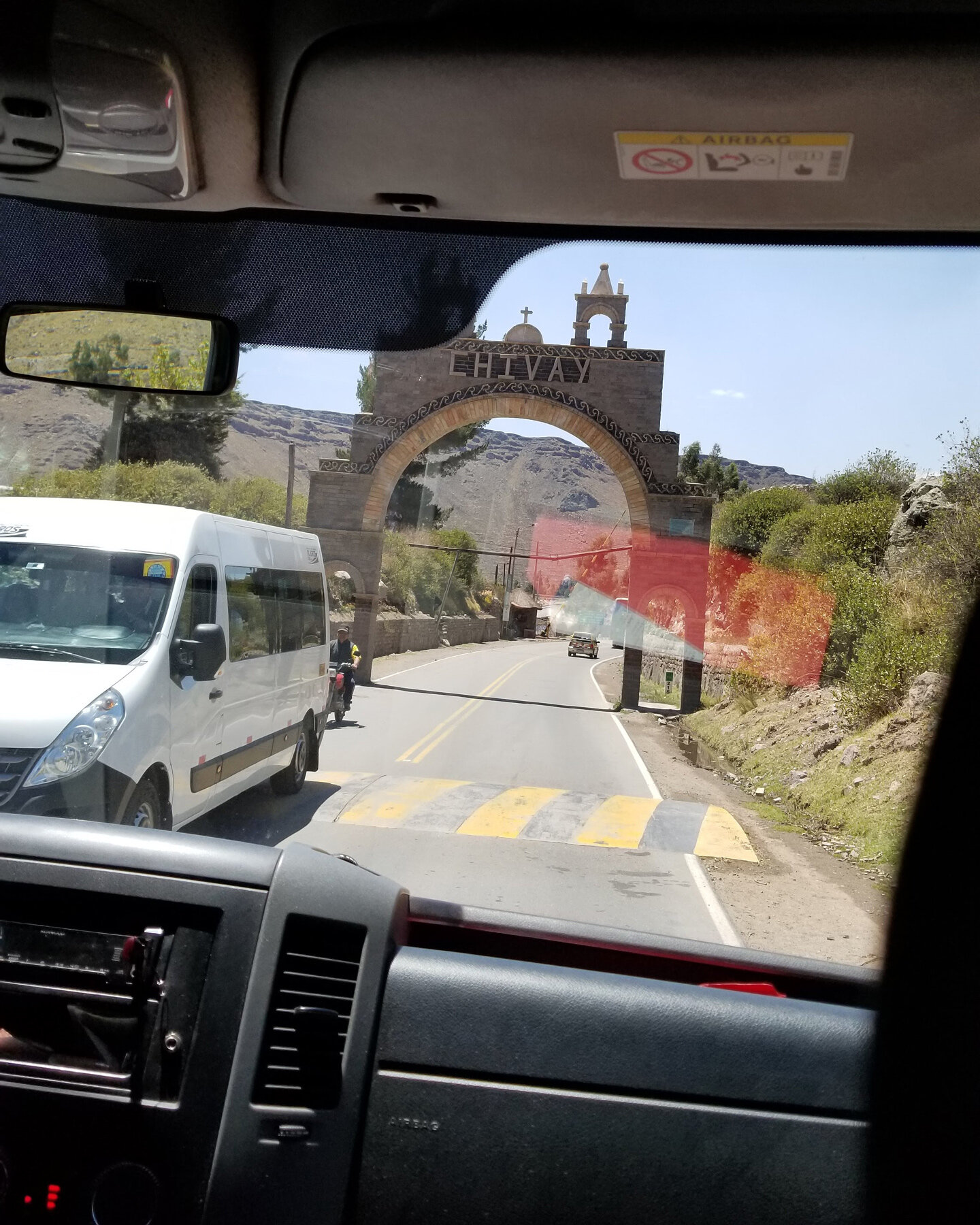
After checking into our charming courtyard motel, Casa Aldina Colca, where we were afforded a few moments to freshen up, we proceeded to take a walk to the center of town for the main course - a performance we didn't know we'd experience and we certainly wouldn't soon forget.
An experience that warrants a bit of context.
The Peruvian Highlands are certainly a magical place. There's no doubt about that. Naturally, the Andes provide perhaps the most gifted peaks and valleys on the planet. But the dirty little secret of the region is that some of these impoverished remote areas and villages are filled with crime, violence, alcoholism, drug abuse and child labor, among other things. It’s not an easy existence. And survival is at the forefront of every human being’s psyche. For many of the children affected, they have nowhere to turn and very few, if any, sources of hope.
This is where Sinfonia por el Peru comes into play. The symphony is a program that gives many of these gifted children a safe and nourishing space to turn to - music. Where "a musical instrument replaces a future weapon, teamwork replaces ganging, and the pride that families feel for their children's achievements replaces domestic violence and child labor."
And it has worked.
Tremendously.
This 9 year old project founded by Peruvian musical legend Juan Diego Florez, has ballooned in both popularity and reach - Sinfonia por el Peru now touches over 8000 children in 21 music centers in the poorest areas of Peru.
And I'm not just saying this to be nice, but the performance and their talents were RIVETING. They brought delightful amounts of vibrancy and life to that old concrete gymnasium with some of the most beautiful voices and instrumentation this side of the Incan sun.
Not a single one of us walked away with a dry eye. It was invigorating, inspiring, beautiful, powerful, moving, touching - a perfectly fitting introduction to the warmth we’d run across throughout the trip.
Needless to say, I did not quite expect that something that wasn't even on our itinerary, that took place inside a dilapidating school gym, would be a highlight of a 2-week trip through the highlands of the Andes, some of the worlds’ most majestic mountains.
I had originally recorded some 360 video footage of one of the songs they performed, but unfortunately a technical issue corrupted that file. However, I was able to salvage one 360 photo for an idea of the atmosphere and the audio file if you’d like to listen in before continuing onto Part 3 - the main reason we were all here, the vicuna chaccu (feel free to subscribe to my newsletter to be alerted when each post goes live!)
And for random tiddlebits and waddlehits, find me on Instagram
(Editor’s Note: This trip originally happened in fall of 2019, when it was still safe to travel. It has taken some time to get these posts in order due to various reasons #Because2020, but the timing is quite impeccable that I begin publishing them now, as Peru has among the highest death rates per capita in the world from COVID-19, and people in the remote impoverished highland villages, where much of this story takes place, have little to no resources to protect themselves and their families. Quechua Benefit, the non-profit that sent me out has been raising money to provide masks, soap and education, and I’ve partnered with them to help bring some attention. Please consider throwing a few bucks their way through this link. As you’ll see throughout these posts, they’re doing wonderful work in Peru.)



